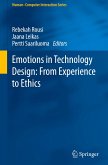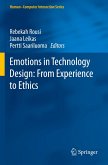It is well-established that while cognitive psychology provides a sound foundation for an understanding of our interactions with digital technology, this is no longer sufficient to make sense of how we use and experience the personal, relational and ubiquitous technologies that pervade everyday life. This book begins with a consideration of the nature of experience itself, and the user experience (UX) of digital technology in particular, offering a new, broader definition of the term. This is elaborated though a wide-ranging and rigorous review of what are argued to be the three core UX elements. These are involvement, including shared sense making, familiarity, appropriation and "being-with" technologies; affect, including emotions with and about technology, impressions, feelings and mood; and aesthetics, including embodied aesthetics and neuroaesthetics. Alongside this, new insights are introduced into how and why much of our current use of digital technology is simply idling, orkilling time.
A particular feature of the book is a thorough treatment of parallel, and sometimes competing, accounts from differing academic traditions. Overall, the discussion considers both foundational and more recent theoretical and applied perspectives from social psychology, evolutionary psychology, folk psychology, neuroaesthetics, neuropsychology, the philosophy of technology, design and the fine arts. This broad scope will be enlightening and stimulating for anyone concerned in understanding UX.
A Psychology of User Experience stands as a companion text to the author's HCI Redux text which discusses the contemporary treatment of cognition in human-computer interaction.
A particular feature of the book is a thorough treatment of parallel, and sometimes competing, accounts from differing academic traditions. Overall, the discussion considers both foundational and more recent theoretical and applied perspectives from social psychology, evolutionary psychology, folk psychology, neuroaesthetics, neuropsychology, the philosophy of technology, design and the fine arts. This broad scope will be enlightening and stimulating for anyone concerned in understanding UX.
A Psychology of User Experience stands as a companion text to the author's HCI Redux text which discusses the contemporary treatment of cognition in human-computer interaction.








